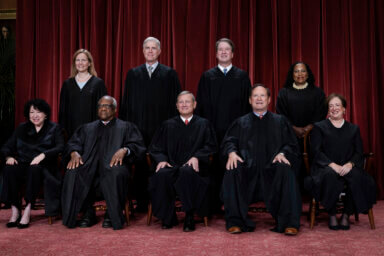Affirmative action considered

The major consequence of the Supreme Court’s decision is on opportunities for Black and Hispanic youth to enter the pathways to prestigious positions. For example, eight of nine of the Court’s Justices graduated from Harvard and Yale. Twenty percent of federal judges graduated from an Ivy League or highly selective public institution. Sixty-three percent of medical doctors graduated from the “most selective” or “extremely selective” colleges. Nearly one-third of corporate officers and directors attended elite colleges and universities.
The original impetus for Affirmative Action was overcoming years of public and private racial discrimination, of providing opportunity for advancement. In announcing his support for the policy, President Lyndon Johnson said in a 1965 commencement speech at Howard University, “You do not take a person who, for years, has been hobbled by chains and liberate him, bring him up to the starting line of a race and then say, ‘You are free to compete with all the others,’ and still justly believe that you have been completely fair.”
The reality today is that most colleges do not practice Affirmative Action in student selection. Only about 5% of American colleges and universities admit less than 50% of applicants. Most admit two-thirds of the applicants for freshman status.
The significance of the Supreme Court case is not in undergraduate admissions. It is, rather, that these highly selective campuses that have used race to assist in enrolling a diverse student body are major sources of judges, doctors, scientists, patent holders, and other leaders in society. If these institutions cannot consider race and racism in composing a first-year class, the consequence will be that Black and Hispanic high school graduates will not be enrolled in the same numbers and will not have the same access to positions available to graduates of these institutions.
While graduates of less selective, regional colleges do well in life and careers, the fact is that graduates of highly selective universities have an advantage. These institutions are national pipelines to prestigious networks that should be open to more high school graduates from diverse backgrounds.
As a nation, we should do more to support our public schools so that more students can reach their potential. We must acknowledge the continuing effects of racially discriminatory practices in schooling, housing, and public resources. Then, all young people will be able to enroll in colleges that can provide the academic preparation and alumni networks necessary for professional success and community leadership. Perhaps then our courts and board rooms will be more diverse not only in family background but also in their colleges of origin.
Robert A. Scott is president Emeritus, Adelphi University, and author of “How University Boards Work,” Johns Hopkins University Press, 2018; Eric Hoffer Book Prize Awardee, 2019.





